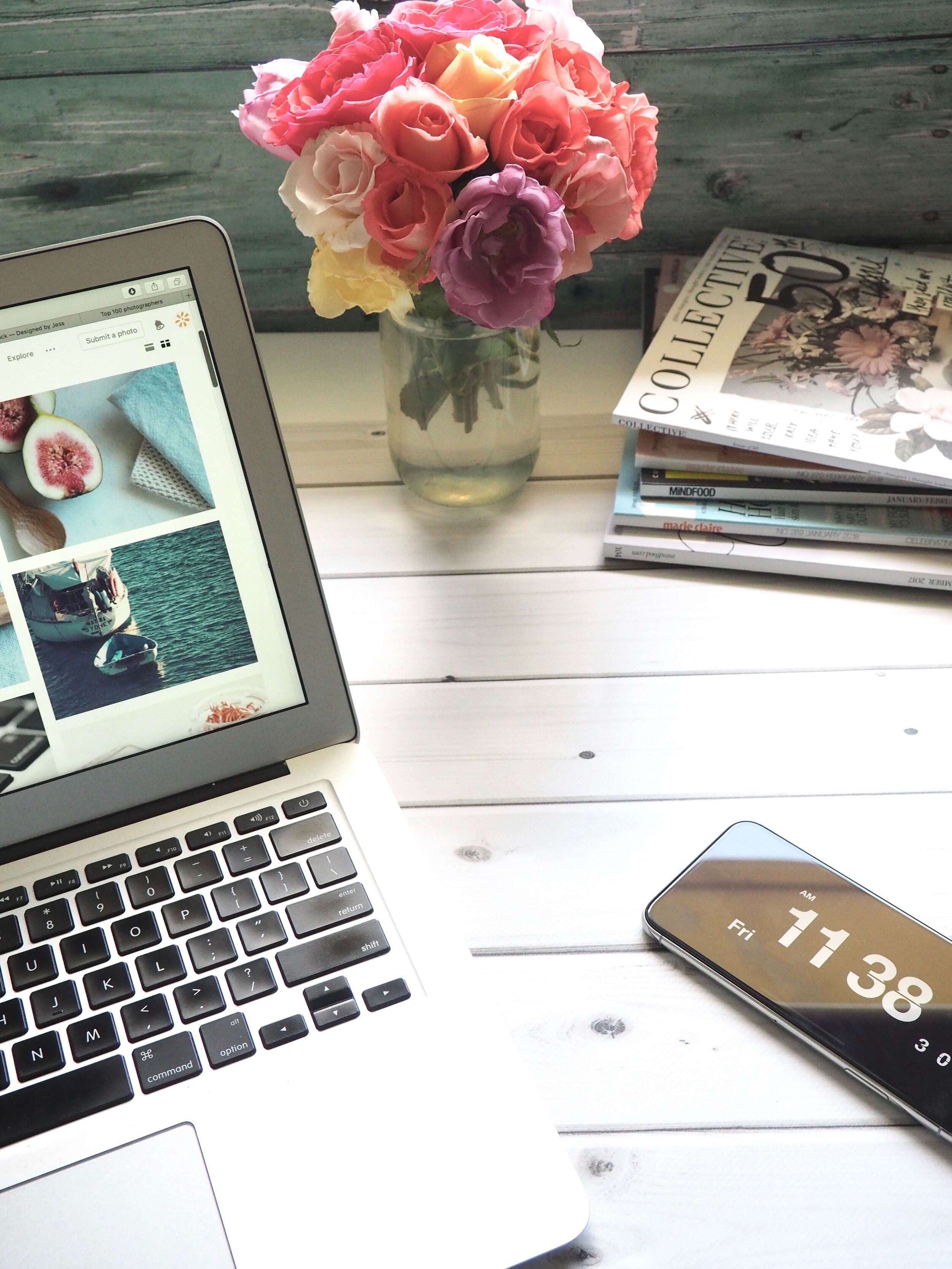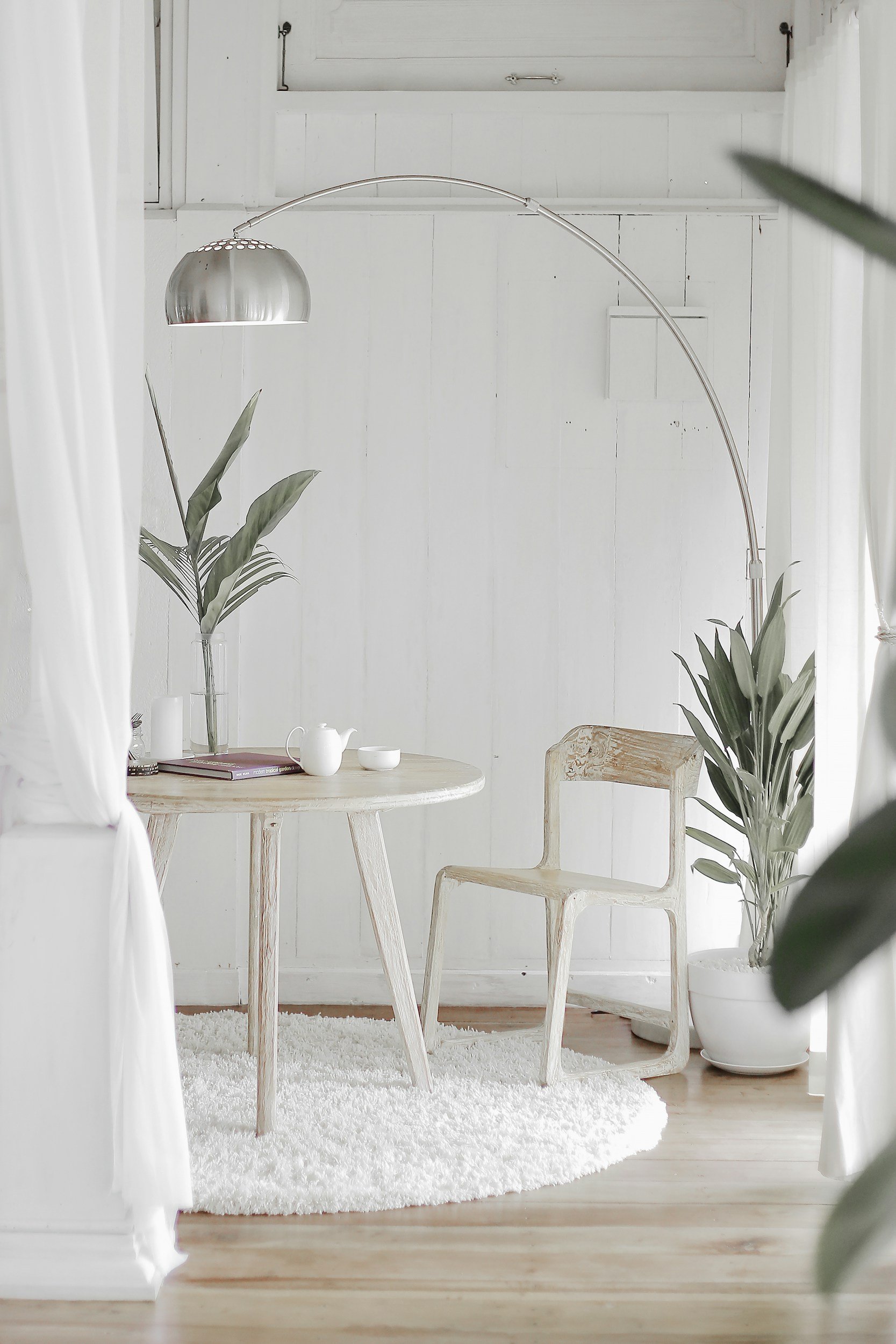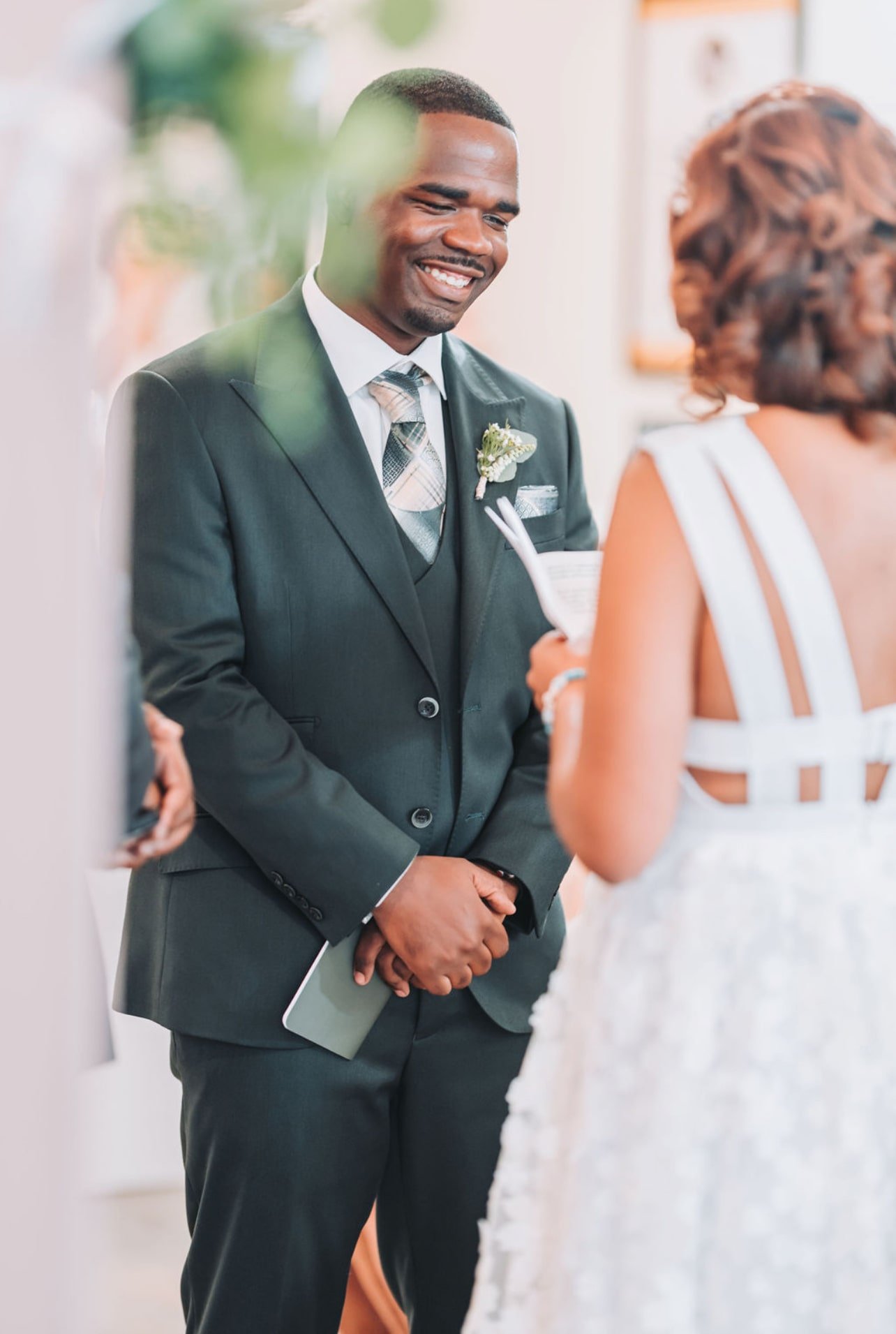What Is A Blog?
Blogging. We’ve all heard of this elusive practice. We know someone who blogs. We read a blog (I mean, you’re reading this one!). After a while, we start to wonder, should I start a blog? With that question comes a bunch of others:
What even is a blog, like technically?
Can I really be a blogger?
If so, when should I start this blog?
Where do I start this blog?
And should I really start a blog?
Well, I’ve got some answers for you, all neatly packed into one blog post.
I’ve been blogging since 2009. My first blog was created after I graduated from college, moved back home, and started making money (to buy clothes with). At the time, fashion blogs were the thing. Everyone had one and everyone read one. Convinced I had great style and everyone wanted to hear me talk about it, I started a fashion blog. Once I had my daughter, I incorporated a bit of parenting content into the blog because who doesn’t love getting parenting experts from a brand new mom?! For the past few years, I’ve written a blog about divorce and co-parenting. It’s the longest blog I’ve maintained and the only one I’ve posted to consistently. So it just may stick!
Because I’ve had different types of blogs on different platforms, I’m often asked to help set up a blog. And I’ve happily done so. I can safely say I’ve got some pretty well-rounded experience with blogging. And I wanted to pass along the answers to questions I commonly get.
So let’s get to it!
What is a blog?
Let’s start with the basics. Merriam-Webster defines a blog as a “website that contains online personal reflections, comments, and often hyperlinks, videos, and photographs provided by the writer.”
The first blog is said to have appeared in 1994 by Justin Hall as a way of showing HTML examples with personal commentary. His, and the few that came afterward, were originally called “Online Diaries” or “Personal Pages.” As the idea caught on, computer programmers began to dominate the “online diary” arena. The websites, now called “weblogs,” were cumbersome and made with heavy amounts of code.
In 1998, things changed with the creation of “Open Diary,” a platform that allowed members to comment directly on each other’s writing without needing any coding knowledge or expertise. People liked that! Several other platforms emerged that allowed regular-non-programmer people to create and maintain their “weblogs” easily, platforms like Xanga, LiveJournal, and Blogger. And in 1999, we shortened it from “weblog” to “blog.”
As popularity increased, people started to market their blogs. I mean blogs became famous! Just think of Gizmodo and Gawker. We also saw the emergence of mommy blogs!
In 2002, blogs became monetized with BlogAds, which became Google AdSense in 2003. Google AdSense made it much more accessible to monetize your blog.
More and more companies joined the blogosphere with the appearance of TypePad and WordPress in 2003. “These platforms made it easy for companies to create their own fully customized blogs and sell advertising directly to companies for improved profits.” (Theme Isle)
In 2005, blogging gained legitimacy as a media source. First, when a blogger received a press pass for the White House! Then, with the creation of the Huffington Post in 2005.
In 2006, we saw the arrival of microblogging with the creation of Twitter! This was quickly followed by the creation of Tumblr in 2007.
Blogs became more visually appealing with customized and stylized themes in 2012. They became mobile responsive in 2015.
That brings us to today! Today, a blog is usually a section of your personal or business website, but can also stand alone. It is updated frequently with new posts that dive into a particular topic.
Who should start a blog?
Absolutely anyone can have a blog these days. It’s literally that easy. The harder question is whether you should have a blog. Really, only you know what you should and should not do. (I know, that’s annoying.) But here are a few pointers to help you decide.
You’re able to be consistent. This is the hardest, yet most important piece. It’s super easy to start a blog, as I mentioned. It’s much harder to blog consistently. It can be difficult to think of enough interesting topics and sub-topics or find the time to write, edit, and post. But without posting consistently, you’ll lose credibility and, ultimately, readers. If you’re able to post regularly (whether it’s once a day, once a week, or once a month), then let’s move on to the next pointer.
You have a point of view. With everyone having a blog, Youtube channel, and/or social media presence, we’re bombarded with content on every subject every day. Don’t let that discourage you though! Your take on parenting won’t be the same as other moms. Your tips for web design won’t be the same as other web designers. Your opinion about the latest books and movies won’t be the same as other book bloggers. If you have a strong opinion or fresh point of view, your content will stand out.
You’re not opposed to writing. There’s no getting around it. Blogging is writing. Even if that writing is conversational and informal, it’s still writing. If you’re comfortable and even remotely skilled at writing, then you’re good to go!
You’re passionate about the topic. This is important because passion is what will sustain your blog. Blogging is all fun and games when you first start. But after months or years, it can feel like work if you’re not passionate about the topic. If you have a topic you can talk endlessly about, you’ll be more incentivized to consistently write about it.
You’re organized. Sure, sure. Blogging is exciting. But a lot goes into it. From research and drafting, editing and posting, to engagement and promotion, monetization and expansion. It can be easy to get lost in the ‘deadlines’ and let the blog lapse. You’ll need to stay organized. There are tons of aides out there (like schedulers and organizers) to help you out. But you’ll need some level of internal organization.
If you have these things, you’ve got all you need to start a blog.
When should you start a blog?
There is no best time to start a blog. No better time of the year or month. It’s really up to you. I recommend that you start once you have everything you need, namely branding, several post-ready entries, and a clear path.
Branding will help you determine how your blog is received by and interacts with your readers. It includes things like your name, URL, colors, logos, values, and voice. You want to be intentional about these. You want them to accurately represent you and/or your company, and therefore attract your ideal reader and/or client.
Then, having several (I recommend at least a month’s worth) posts written, edited, and ready for publishing is incredibly helpful. It keeps you from starting out feeling rushed or falling behind. It also allows you to format your blog posts if you already have an idea of their general length, vibe, and subject matter.
Finally, by a clear path, I mean where the blog is going. I’m a writer. I always start with an outline. Before I even started my blog, I had outlined ideas for 6 months worth of blog posts. This keeps you from running out of ideas and writing empty or redundant posts. Also, knowing whether you want your blog to turn into a book or podcast, or to lead to employment opportunities, or to be just for fun, at the start of your blog will help you write each post with a specific end goal in mind.
If you have those three things, you’re ready.
Where should you host your blog?
There are many different platforms to host your blog. If you’re blogging as an individual or company that already has a website, you can just start a blog page on that website. There’s no need to create a whole new website.
If you don’t have a website, or for some reason, need your blog to be wholly separate from another website you have, then you have tons of options. We’ll cover the top four.
Wix provides cloud-based web development services. It allows users to create websites and mobile sites through the use of online drag and drop tools. Its layouts are designed for small businesses, restaurants, online stores, and artists. It is touted as being the best platform for beginners because of its variety in templates and drag and drop design. However, for blogging purposes, it has some undesirable features, such as users have to sign up for a Wix account to leave a comment, you can’t add tables, and site navigation has only one layer.
WordPress is an open-source content management system. Its features include a plugin architecture and a template system, referred to within WordPress as Themes. WordPress is arguably the most popular. It offers a large degree of customization and power, as well as integrations and plug-ins. However, it is this very customization and additional features that can be overwhelming for a beginning blogger. This is the platform I originally used for my fashion blogs. I liked it, but always felt it was a bit stiff.
Squarespace is a website building and hosting platform. It provides software as a service for website building and hosting, and allows users to use pre-built website templates and drag-and-drop elements to create and modify web pages. It is designed and marketed for blogs, portfolio sites, and online stores. It offers templates and designs, a ton of cool blogging features (scheduling, multiple authors, easy commenting, easy sharing, etc.), a super useful app, and tech support. However, it can take a minute to get used to the editor, and their page speeds can be slow. I use Squarespace now and am even a Squarespace Circle member, and I absolutely love it!
Weebly is a web hosting service. It lets you create and publish websites. It is known for being incredibly easy to use. It offers intuitive design, integration with Square, mobile responsive themes, and membership areas. However, its design flexibility is rather limited.
While I would recommend Squarespace, ultimately, it depends on what you work best with (because it’s your blog!) and what your content is. Some platforms are better suited for certain types of content. So consider whether it’ll be all text or mostly photos, whether the site will grow into other things like a store or stay a blog, whether you have a lot of time to dedicate to editing or want something simple and straightforward.
You can also, of course, just hire a website designer and have them do it for you!
Why should you start a blog?
There are a TON of reasons you can and should start a blog. Seriously. Just google it. You’re going to find 5,693 reasons. They often include attracting an audience, establishing authority, building rapport and engagement, creating opportunities, organizing your thoughts and learning, telling your story, meeting new people, standing out, validating expertise, and making money.
When I started my first two blogs - fashion and then parenting - they were to tell my story. When I started my latest blog it was to tell my story, attract an audience for a future book, and help other women.
Ultimately, I think if you have something to consistently say and think it could help you or someone else, then absolutely go for it!
I know this has been long. But I hope it helped you decide whether or not you want to start a blog. Do you have any additional questions? Want to run your idea by me? I’m all ears! Leave a comment below.
References


![Building a Strong Coparenting Foundation [Tips and Stories]](https://images.squarespace-cdn.com/content/v1/5f49fb148109a775b6caf7a2/1730938613258-PN0THVT6LAC40C4FLI4C/unsplash-image-httxBNGKapo.jpg)
![Personal Wedding Decor Ideas [With DIY Tips]](https://images.squarespace-cdn.com/content/v1/5f49fb148109a775b6caf7a2/cf23744d-b749-4adf-885d-ee38e407d9d6/Personal+Photos+Second+Wedding+Lauren+Marie.JPG)
![Game Day Ritual Ideas [Pre-Game Football Rituals for Wives]](https://images.squarespace-cdn.com/content/v1/5f49fb148109a775b6caf7a2/92055e4e-bb36-48d8-b4d0-a86bde9e6743/Game+Day+Ritual+Ideas+Lauren+Marie.PNG)
![Marketing Terms Demystified [Branding, Digital, Content, Social]](https://images.squarespace-cdn.com/content/v1/5f49fb148109a775b6caf7a2/1727059227447-SE38GIE2NHO2Z46XQ66G/image-asset.jpeg)
![Mastering Instagram Takeovers [3 Tips for Success]](https://images.squarespace-cdn.com/content/v1/5f49fb148109a775b6caf7a2/1726510214661-S6TEQPG4FXYFP15MGCDX/unsplash-image--UsJoNxLaNo.jpg)
![Game Day Essentials [For Every Football Coach’s Wife]](https://images.squarespace-cdn.com/content/v1/5f49fb148109a775b6caf7a2/34c4c12f-2a8a-4100-9fe7-b8326f64301b/Football+Game+Day+Essentials.JPG)



